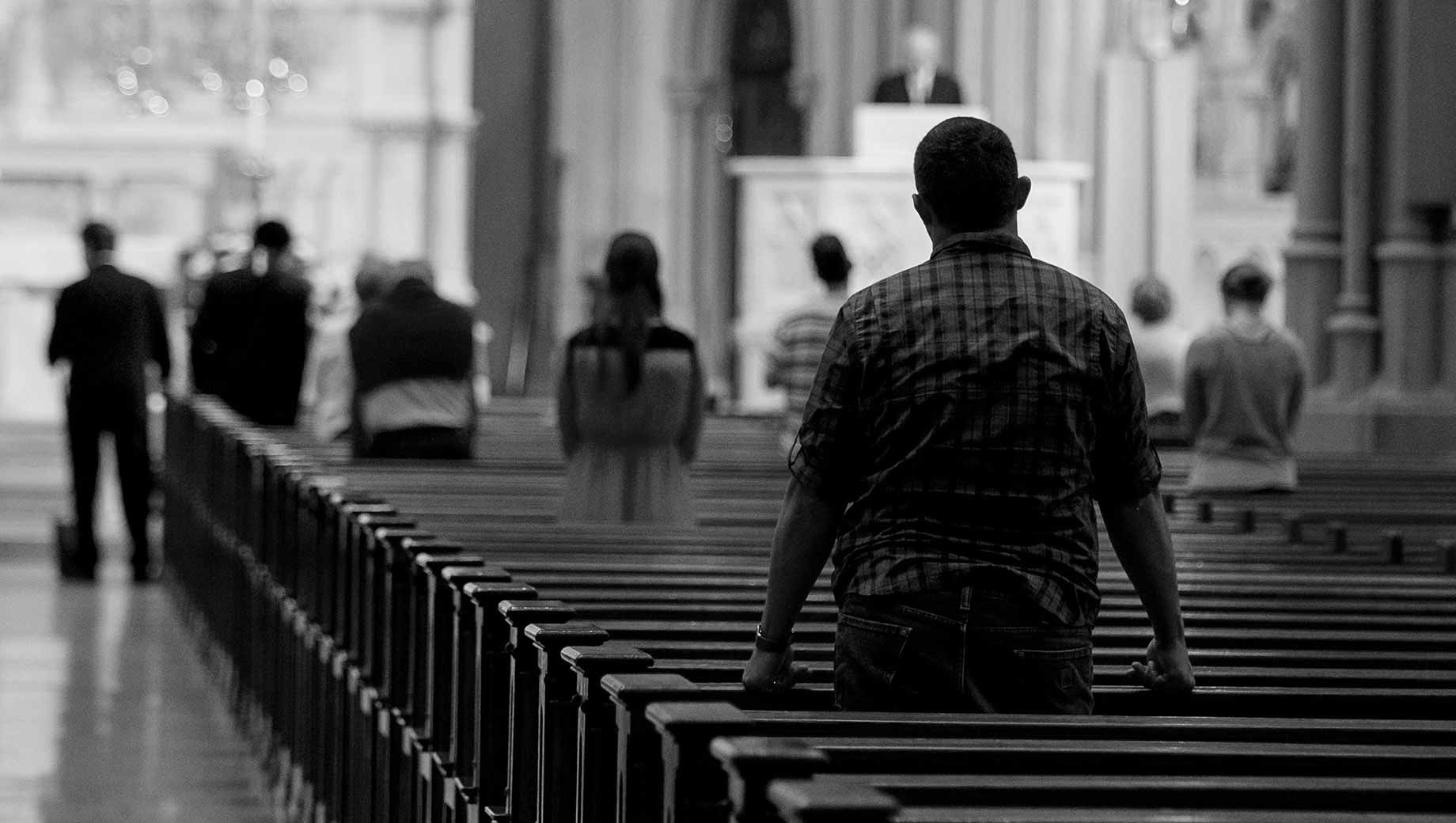In the end, it just might be the obvious that is the problem. People do not go to Church or they fall out of Church because we failed to pass on them both the content of the faith (the theology) and the good habit of church going on Sunday morning. If we fail at passing on this most basic aspect of our common life, it is fairly certain that the rest of the indicators of loss and decline will follow close on their heels. Without good and solid catechesis to know the faith and to know why knowing the faith is important, there is little to keep them around. Without a good habit of church going instilled in them as children and youth, it seems fairly reasonable that their attendance will wag when the opportunity allows. What COVID has done, with the help of a government quick to label church non-essential, is simply to hasten the fruits of this poisoned tree.
If the folks who were (even nominally) raised in the faith and went to Church now cease to come, it is fairly sure and certain that it will require something significant to get those who were not raised in the faith or in the practice of church going to radically change their lives and start now. Plus, when they see the bad witness of those raised in the faith, it will do little to encourage them to ignore their example of faithlessness and it just might confirm them in their suspicion, contempt, and disregard for the Church. When we as the Church have looked at the reasons for our quickening demise, we have too often discounted or dismissed the role poor catechesis and poor church going habits have upon the next generation. The problem was never making the Church more attractive but the real and profound failure of our catechesis and of the role of good habit to church attendance.
By now, the 30% of those who have not returned to in person worship will have gone almost a year without it. They have learned the lie that church is non-essential or that worship can happen just as effectively alone, in front of a screen, without the Sacraments. I have no crystal ball but I can only assume that those who have not returned, probably will not. And why should they? The Church has worked so hard to appeal to preference, the burden for their failure to attend will not be laid at their feet but at the feet of the Church. What more could we have done to encourage, welcome, appeal to them?
It may sound naive and old fashioned but the failure here is the failure of the Church to equip and the failure of the faithful to live out the uncommon common sense that says in order to keep the faith you must know it and in order to live the faith you must begin with worship and a people gathered around the Word and Table of the Lord. To be sure, the Church has been complicit in the exodus of young and old from the House of God. But our complicity was not in failing to offer the people choice and preference. Our complicity was in allowing these to distract us from the main and most essential business of our life together -- teaching the faith and instilling the habit of weekly worship. It is the uncommon common wisdom that has somehow eluded us for half a century.

No comments:
Post a Comment